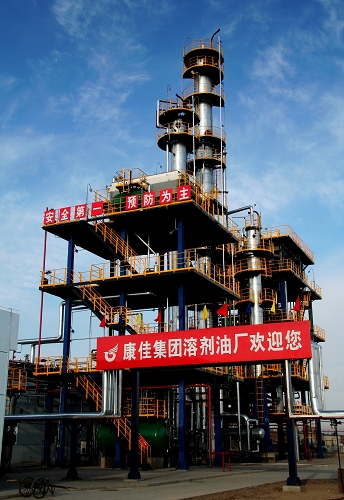The term “vegetable oil” sounds healthy, because vegetables are healthy, right? Lettuce, broccoli, peppers, cucumbers…
…but that’s not what “vegetable oil” is made from. It’s made from grains, seeds, and beans.
- Corn oil: grain
- “Canola” (rapeseed) oil: seed
- Soybean oil: bean
- Sunflower oil: seed
- Safflower oil: seed
- Peanut oil: bean. Yes, peanuts are beans, not nuts.
- Sesame oil: seed
- Cottonseed oil: seed
(The exceptions are olive oil, coconut oil, and red palm oil…all of which are fruits.)
“Grain oil” and “seed oil” just don’t have the same healthy implications, do they?
Not to mention that, with the exception of fruits like olive and coconut (and a few oddballs like cold-pressed peanut oil), all “vegetable” oils are extracted using the poisonous solvent hexane—and this chemical process is responsible for over two-thirds of the hexane emissions in the United States. Soybean processing facilities emit a gallon of hexane for each ton of soybeans processed—which means a large soy processing plant emits over five million pounds of hexane per year!
Even more importantly, hexane processing strips the remaining nutrients from the oil, and turns a significant quantity of polyunsaturated fats into inflammatory, artery-clogging trans fats! (Anywhere from 0.5% to 4.2% of the total, according to this paper…and you won’t see them on the nutrition label, either.) Since replacing just 2% of calories with dietary trans fat is associated with a doubling of death risk from cardiovascular disease, this is a significant health issue.
“Vegetable oil” isn’t a food. It’s an industrial product, and it has no place in our diet.
Let’s start calling it what it is—seed oil—
—and let’s put it where it belongs—in our cars.
JS
PS: Help spread this healthy meme by forwarding this article around, and by using the term “seed oil” instead of “vegetable oil”! I guarantee it’ll start a conversation, and you’ll be able to educate people about healthy eating. This involves meat, eggs, vegetables, fruits, and recognizable ingredients minimally processed, not industrial products like ‘soy milk’ and ‘veggie-burgers’. Furthermore, it involves cooking with butter, tallow, and coconut oil in moderation, not industrial products like ‘margarine’ or ‘vegetable oil’. Click here to find out more!
(Since most olive oil and coconut oil is not chemically extracted, moderate amounts of olive or coconut oil (preferably virgin and cold-pressed) qualify as food. Note that the USDA has recently updated regulations that bring the USA into line with the rest of the world regarding labeling: chemically extracted olive oil must be called “olive pomace oil”.)


